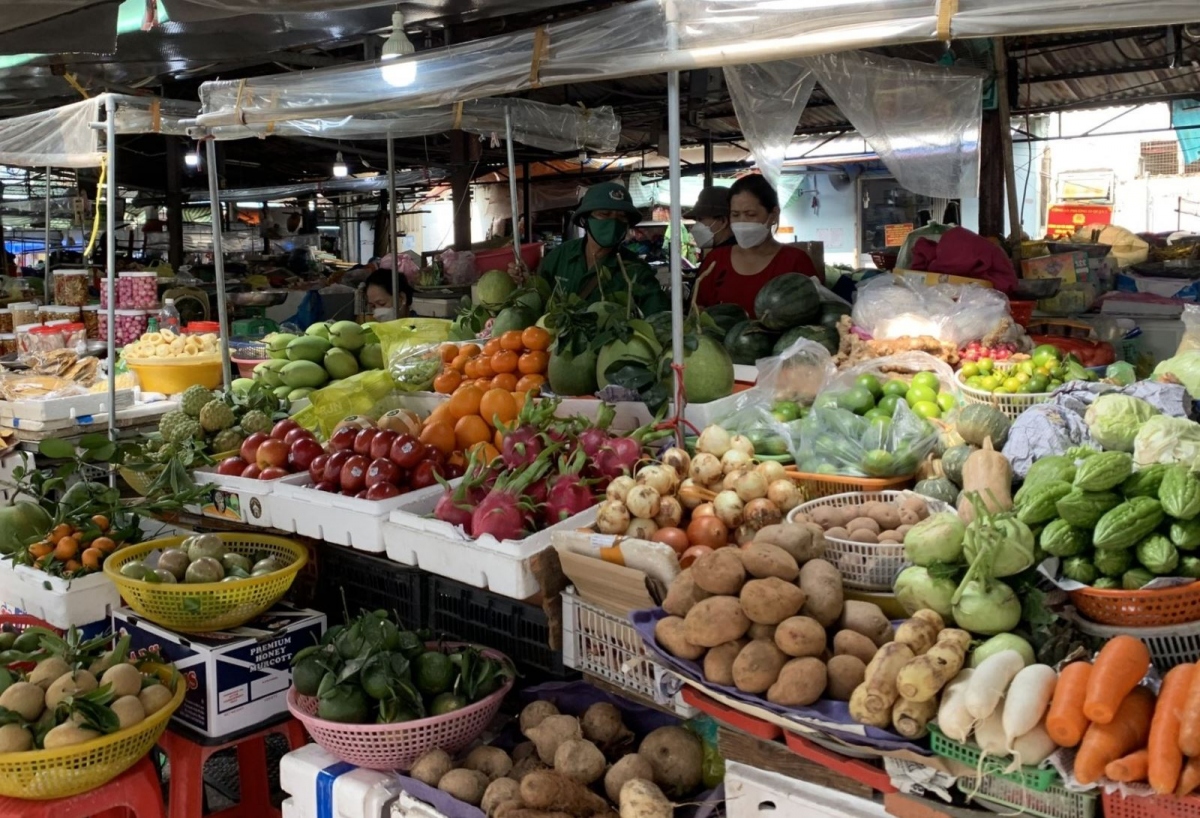Vietnam earns international plaudits for its anti-inflation efforts
VOV.VN - Inflation is currently being well controlled in Vietnam thanks to an active and flexible monetary policy, coupled with self-control in the supply of basic necessities in the country, according to foreign experts.
Supply chain disruption globally caused by the COVID-19 pandemic and the subsequent conflict between Russia and Ukraine has sent energy and food prices skyrocketing around the world.
Starting from developed economies, inflation has become a common story among many countries globally. However, for Vietnam, inflation has been kept under control thanks to an active and flexible monetary policy with self-control shown in the supply of basic necessities in the country.
Pemba Tshering Sherpa, communications officer of the International Monetary Fund (IMF), assessed that Vietnamese inflation was lower than that of most countries in the region.
Until recently, inflation has been mostly limited to certain goods such as fuel and fuel-intensive services such as transportation.
Sherpa said that consumers had largely been unaffected by the rise in global food prices due to ample domestic supply, lower pork prices from last year's peak, and the focus on consuming rice, a habit which is still cheaper than wheat and other grains.
According to Sherpa, the reduction of environmental tax and other taxes and fees on petroleum products, such as preferential import tax and special consumption tax, helps to reduce the impact of rising world oil prices on Vietnamese households and businesses.
Furthermore, the freezing of prices for some services, including electricity, healthcare, and education, has also contributed to keeping inflation under control so far.
Meanwhile, Nguyen Minh Cuong, chief economist of the Asian Development Bank (ADB) office in Vietnam, stated that the State Bank of Vietnam (SBV) raising the deposit interest rate ceiling and the lending rate ceiling, as well as widening the exchange rate band from ±3% to ±5%, are completely appropriate steps. Indeed, these are being taken as a means of stabilising macro conditions to ensure medium and long-term growth.
According to the assessment of Andreas Hauskrecht, Clinical Professor of Business Economics at the Kelly School of Business under the US’s Indiana University, the country has done a good job in curbing inflation, expressing his appreciation for the decisions of the SBV in this regard. Inflation, especially core inflation, in Vietnam is both low and stable, he added.
Prof. Hauskrecht said that Vietnamese management agencies have responded well to the impacts of COVID-19 as a way of keeping inflation in check.
Sherpa went on to note that Vietnamese policies have been well-functioning as they support recovery efforts in the post-COVID-19 transition.
However, risks remain amid a significant slowdown in global demand, thereby increasing domestic inflationary pressures and growing pressure on the Vietnamese currency.
These challenges therefore require a shift from a more favourable policy stance to a more cautious one, with a particular focus on maintaining macroeconomic and financial sector stability.
Sherpa also made recommendations on policies and measures for the Vietnamese economy, emphasising that in the short term, monetary and fiscal policies must be carefully communicated.
In terms of currency, the SBV should continue to focus on price stability, particularly after the decision to widen the exchange rate band.
Foreign exchange reserves should also be preserved in response to market turmoil that may worsen in the future.
The SBV should primarily rely on raising domestic interest rates and lowering the ceiling on credit rates in a bid to curb inflation, even if it means somewhat lower growth.
The IMF also encouraged the nation to maintain its inflation target at 4% by 2023 to demonstrate its strong commitments to ensuring price stability.
Fiscal policy must be flexible in the face of growing uncertainty, Sherpa said, adding that the country should rely on targeted transfers to the most vulnerable households and businesses, as opposed to deploying additional broad-based fiscal stimulus measures that would boost inflation. In addition, protecting the stability of the financial system must also be regarded as vital, she added.
Furthermore, the unusually high levels of inflation in many advanced economies could prompt many central banks to continue to raise interest rates in an aggressive manner.
In response, the SBV may face pressure to continue raising the domestic exchange rate.
Cuong assessed that the nation needs to be flexible, continue to adjust the exchange rate band, and raise interest rates at an appropriate level. The problem is which tool will be used in the near future, he emphazised.
Measures aimed at reducing lending interest rates in the 2022 to 2023 period in the economic recovery package will be difficult to implement, although other measures such as tax reduction and extension remain effective. The nation also needs to consider the objectives of its fiscal policies, Cuong stated.
Moving forward, the country needs to manage the foreign exchange and banking markets, learning the lessons of the 2008 to 2010 financial crisis in order to avoid putting too much pressure on monetary policy.
However, the most important thing is that the confidence of foreign investors and people continues to increase and the measures that Vietnam takes are still effective.
Prof. Hauskrecht said that, until the time when the US Federal Reserve (Fed) starts to change the monetary policy and lower interest rates, the nation will have more room to introduce additional stimulus measures.
According to him, the country needs to maintain stable interest rates, reasonable fiscal policy, and prudent monetary policy in the immediate future.


